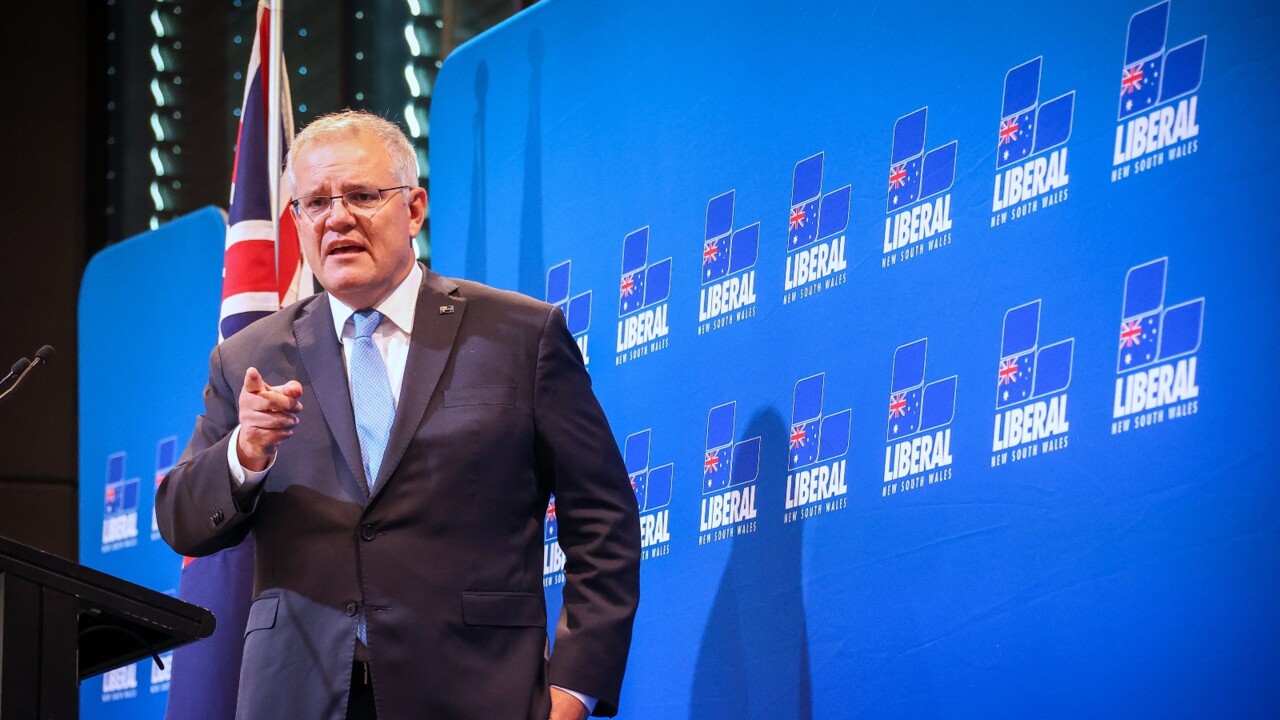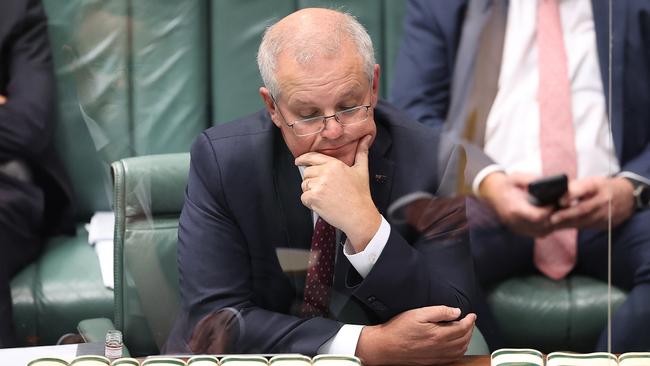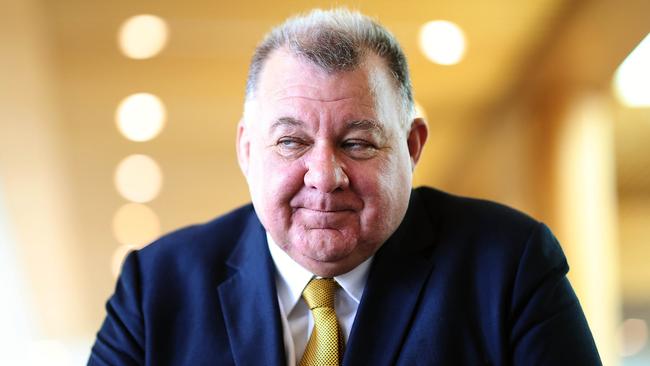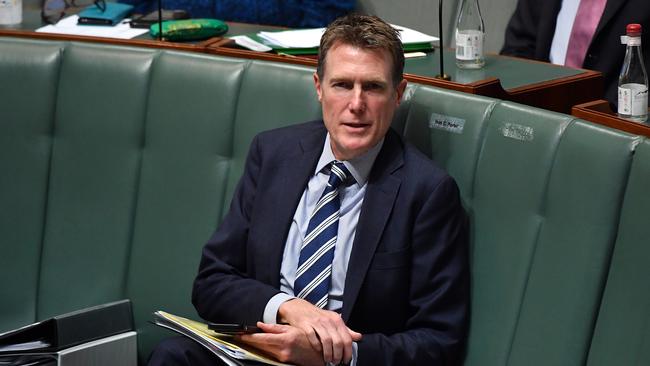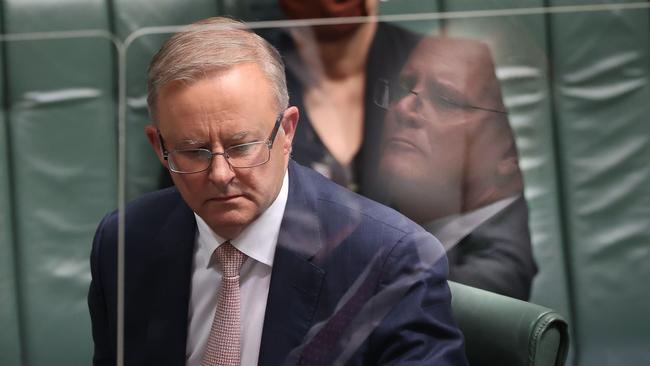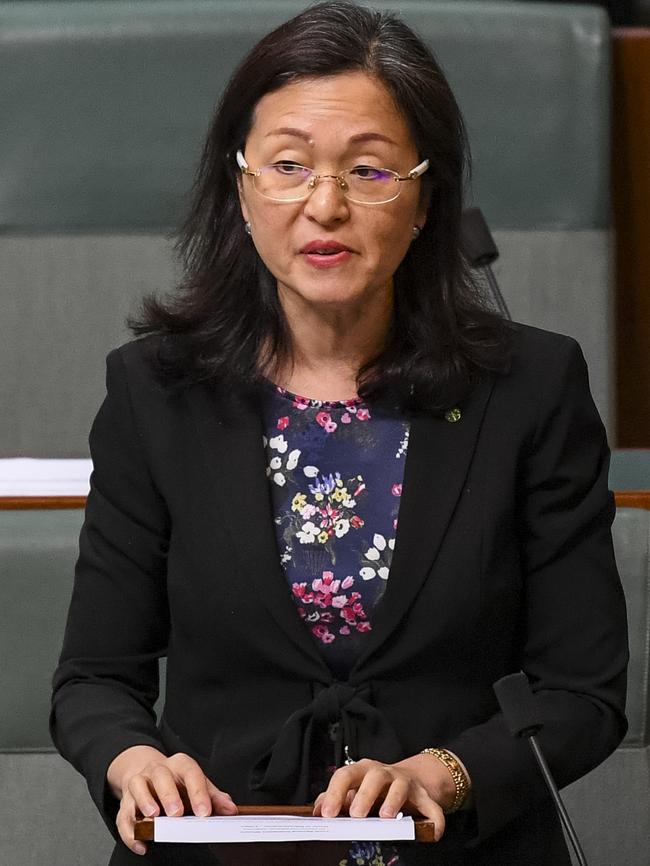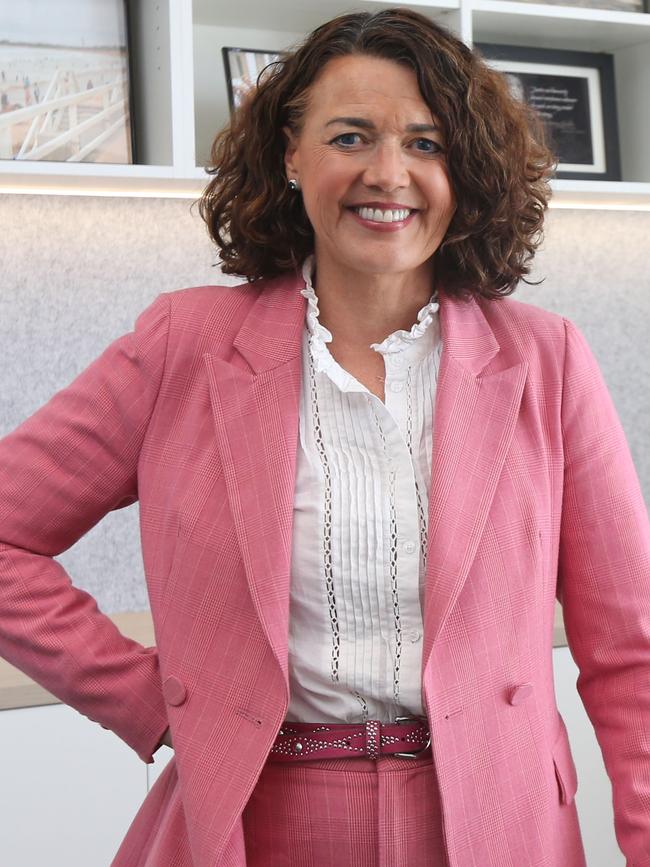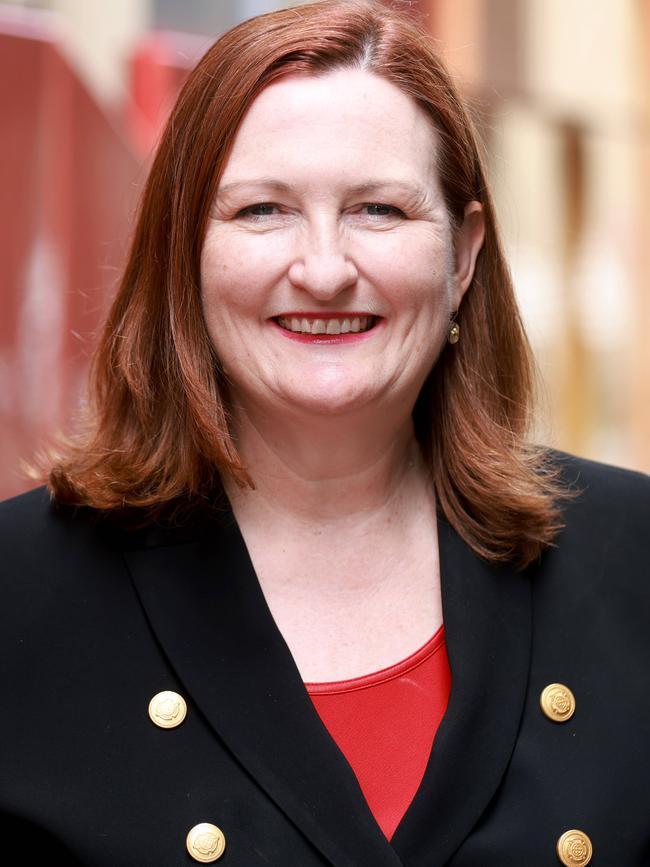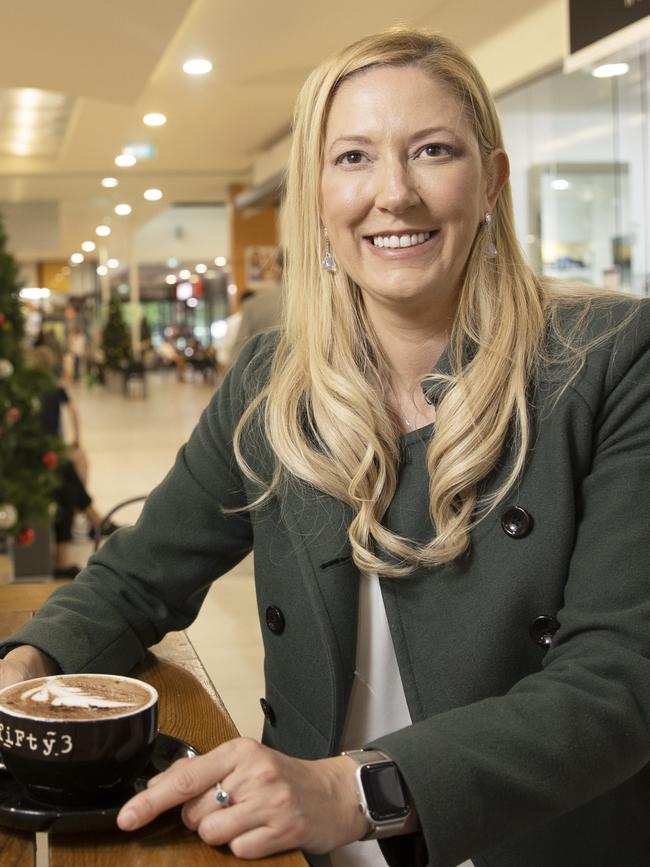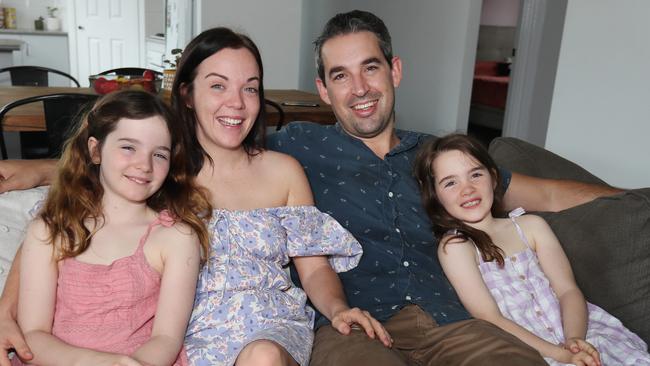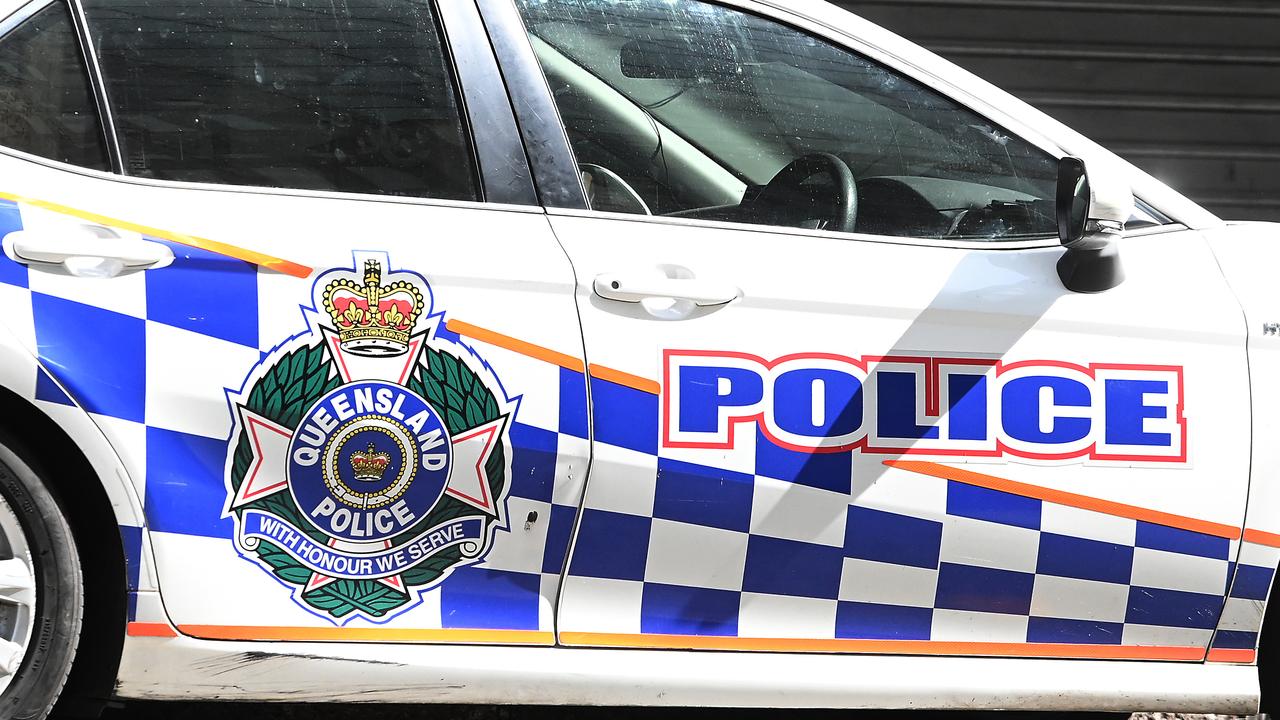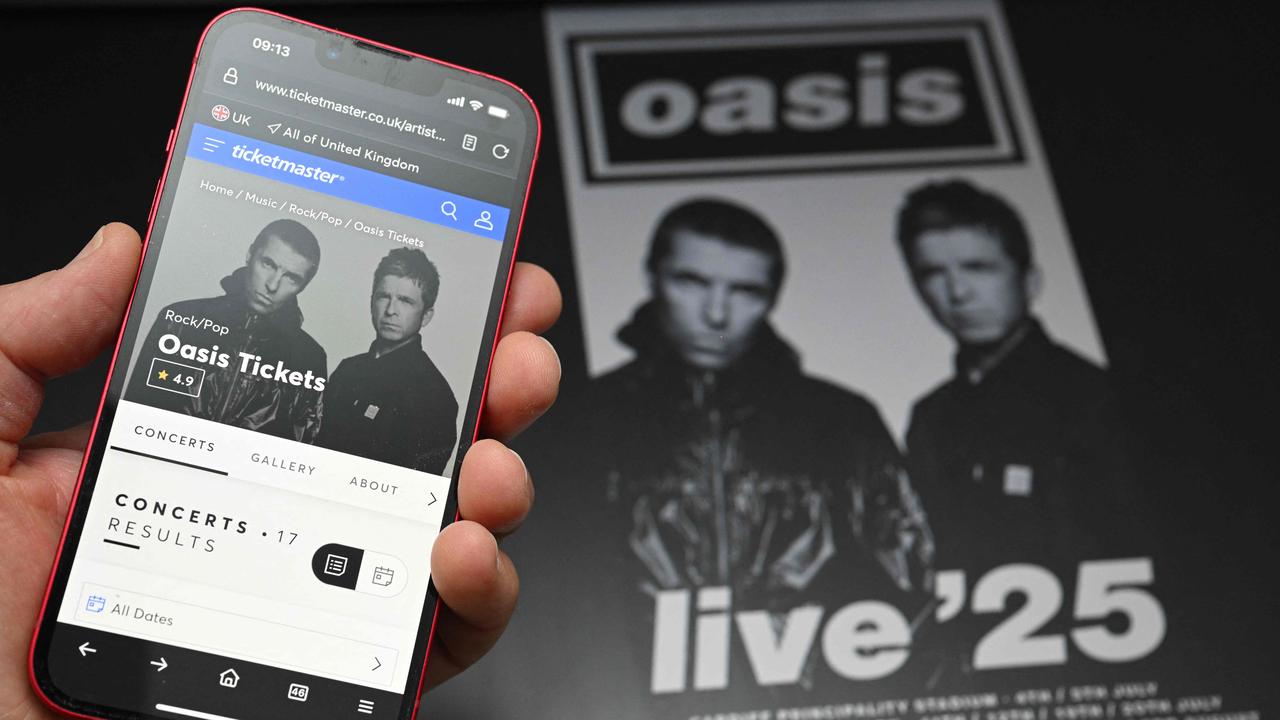News Corp has spoken to a number of strategists and MPs from both the major parties to identify key battlegrounds, ahead of the election likely to be held in May next year.
A handful of seats are potentially up for grabs in Tasmania, Victoria, South Australia and Queensland, but the real battle will be in NSW, where a clutch of Labor marginals will be targeted by the Coalition in a bid to offset potential losses elsewhere.
Labor will seek to win the extra seats it needs in WA, where Labor’s brand is strong due to the dominance of Premier Mark McGowan and the local popularity of his tough closed-border stance.
Both sides believe the retirements of longstanding and popular members of parliament have potentially opened up some usually-safe seats to challenge, including the Labor-held seat of Lingiari in the Northern Territory and the Nationals seat of Flynn in Queensland.
Populist right-wing parties such as Clive Palmer’s United Australia Party and Pauline Hanson’s One Nation could also have a significant impact on the result, with the parties tapping into voter unrest about vaccine mandates and border closures.
The impact of a group of loosely-aligned left-leaning “voices of’’ independents, focused on climate change policy, is not yet clear.
In NSW, the Coalition has set its sights on the Labor seats of Macquarie, Gilmore, Eden-Monaro, Hunter and Parramatta.
All five are either marginal, or have popular local members retiring (Joel Fitzgibbon in Hunter and Julie Owens in Parramatta).
The Liberals also want to win back the seat of Hughes, which was won by Craig Kelly as Liberal before he defected to the crossbench.
In Western Australia, three Liberal seats are in play, including those held by two ministers.
Former Attorney-General Christian Porter’s seat of Pearce is always volatile, but will be particularly vulnerable this year, with Labor still believing Mr Porter will resign from Parliament, despite his statement that he will recontest. If he does recontest, his character will be strongly attacked.
The 20 electorates that hold the key to next year's federal election

Current state of the House*
- 151 seats
- Parties need 76 seats for majority government
| Party | Members |
Coalition
(Liberals, Nationals, Country Liberal and Liberal-National Party) | 76 |
| Australian Labor Party | 68 |
| Independents | 3 |
| Minor parties | 4 |
*(A seat redistribution after 2019 has seen the WA Liberal seat of Stirling abolished, and the notionally-Labor seat of Hawke established in Victoria)
Labor
| Seats chasing | Seats defending |
| Bass, Braddon, Chisholm, Boothby, Pearce, Swan, Hasluck, Flynn, Leichhardt, Longman | Lyons, Corangamite, Lingiaria, Hunter, Eden-Monaro, Macquarie, Gilmore, Parramatta, Dunkley |
Coalition
| Seats chasing | Seats defending |
| Lyons, Corangamite, Lingiari, Hunter, Eden-Monaro, Macquarie, Hughes, Gilmore, Parramatta, Dunkley | Bass, Braddon, Chisholm, Boothby, Pearce, Swan, Hasluck, Flynn, Leichhardt, Longman |
Tasmania
Bass (Liberal)
A rural Northern Tasmanian seat, it swings wildly and has changed hands four times since 2004. The Coalition’s most marginal seat, it is held by just .4 per cent by Bridget Archer. Former member Ross Lyons, who won the seat in 2016 but lost it to Archer in 2019 by 563 votes, has been endorsed as Labor’s candidate.
Braddon (Liberal)
A mainly rural seat in North-West Tasmania, it changes hands regularly, and was won by new member, former soldier and farmer Gavin Pearce, in 2019. With a margin of 3.1 per cent and a reasonable number of swinging voters, it will be a key battleground. Labor has endorsed Burnie councillor Chris Lynch as its candidate.
Lyons (Labor)
Held by Brian Mitchell since 2016, it has an okay margin of 5.2 per cent. However, the Liberals’ last campaign was derailed when their candidate Jessica Whelan was dumped over anti-Islamic social media posts, and the Coalition believe the strong support enjoyed by the State Liberal Government will help its candidate, local councillor Susie Bowers, this time around.
Victoria
Chisholm (Liberal)
The main game in Victoria, this seat was held by Labor’s Anna Burke from 1998-2016, and the Opposition are a good chance to take it back. Julia Banks won it in 2016 but quit the Liberals in 2018 citing internal bullying. Gladys Liu won it by a margin of just .5 per in 2019 and will be targeted by opponents over her links to the United Front Works Department, the Chinese Communist Party’s international propaganda arm. Labor will throw a lot of money at academic Carina Garland’s campaign.
Corangamite (Labor)
Always a tight seat, Libby Coker holds it by a margin of 1 per cent after wresting it from the Liberals in 2019. Labor believes the Covid-19 mass migration from Melbourne into the Surf Coast seat has made it more urban, and therefore safer. The Liberals have endorsed Geelong mayor Stephanie Asher, who has good name recognition, but the party is probably unlikely to win extra seats in Victoria.
Dunkley (Labor)
This was a Liberal seat for 20 years before barrister and Legal Aid lawyer Peta Murphy won it for Labor in 2019. It’s on a tight margin of 2.7 per cent, and the Liberals have endorsed former Crown prosecutor and barrister Sharn Coombes, who already has good name recognition from her appearances on reality TV show Survivor, where she has twice finished runner-up.
South Australia
Boothby (Liberals)
The main fight in South Australia, Boothby is up for grabs after Liberal incumbent Nicolle Flint quit, citing vicious attacks against her by progressive lobby groups and unions. With a margin of 1.4 per cent, it will be a genuine battle between two strong female candidates – former St Vincent de Paul CEO Louise Miller Frost for Labor, and healthcare consultant and Rhodes Scholar Rachel Swift for the Liberals.
Western Australia
Swan (Liberals)
Western Australia is where Labor has a strong chance in several seats, and will be looking to leverage the ascendancy of Premier Mark McGowan. Long-term member Steve Irons, who holds the seat by 3.2 per cent, is retiring. The battle will be another between two female candidates – lobbyist and PR director Kristy McSweeney for the Liberals, and engineer Zaneta Mascarenhas for Labor.
Hasluck (Liberals)
The seat held by the nation’s first Indigenous Member of the House of Representatives, Ken Wyatt, since 2010 is considered to be in play. Although its margin is 5.9 per cent, it has a reasonably high number of swing voters, and Labor will strongly back its candidate, a former manager at mining giant Woodside, Tania Lawrence. It’s all about minimising losses for the Liberals in WA.
Pearce (Liberals)
Another problematic seat, it is held by Minister Christian Porter on a margin of 5.2 per cent. It is always considered a difficult seat, and will be rich pickings for Labor this time. Rumours abound that Porter will retire, despite his denials. If he recontests, Labor will attack his character. The Labor candidate is Wanneroo mayor Tracey Roberts.
Queensland
Flynn (Nationals/LNP)
Veteran MP Ken O’Dowd is retiring, giving Labor its strongest chance in years to seize this northern Queensland seat, which is on a margin of a deceptively-healthy 8.7 per cent. Labor has a very strong candidate in Gladstone mayor Matt Burnett, who is well-known and liked. The LNP also have a well-known candidate in local MP Colin Boyce, who is seeking to go from State parliament to Canberra.
Leichhardt (Liberals/LNP)
The economy in this tropical Queensland seat has been smashed by Covid lockouts, so both parties will have to focus on economic recovery. Long-term MP Warren Entsch decided to revoke his resignation for one last term, and has strong name recognition. Cairns-based union organiser Elida Faith is the Labor candidate again, after her failed tilt in 2019.
Longman (Liberals/LNP)
Held by Terry Young, elected in 2019 with a margin of 3.3 per cent, this is a perennial swing seat which tends to swing wildly. Young, who ran a Drummond golf franchise before being elected, is up against health policy expert Rebecca Fanning, who worked on the Queensland government’s Covid response.
Northern Territory
Lingiari (Labor)
Labor’s Warren Snowden is retiring after holding the seat since 1987, apart from a short break in the mid-90s. A huge seat covering most of the NT, including the territories of Cocos (Keeling) Islands and Christmas Island, and numerous remote Indigenous communities, it is almost impossible to poll. Labor has endorsed a senior Indigenous woman in Northern Land Council CEO and former deputy chief minister Marion Scrymgour. The Country Liberal Party has endorsed the well-known former mayor of Alice Springs, Damien Ryan. A total wildcard, will likely come down to personal votes.
New South Wales
Hunter (Labor)
A Labor seat for a century, it’s now on a margin of only 3 per cent, and is vulnerable because 25-year incumbent Joel Fitzgibbon is retiring. Labor is trying to keep blue-collar voters on-side and has endorsed former Olympic shooter and miner Daniel Rapacholi, who has survived a social media scandal relatively unscathed. The Nationals will back their candidate, community relations officer James Thomson, heavily, but One Nation preferences make things hard to judge.
Eden-Monaro (Labor)
The traditional bellwether seat of Federal elections, it is held by Labor’s Kristy McBain on a wafer-thin margin of .8 per cent. McBain, a former Bega Valley mayor, held the seat for Labor at a by-election last year when incumbent Mike Kelly resigned, and is considered a solid local member. The Liberals are yet to endorse a candidate.
Macquarie (Labor)
The Liberals will target this Blue Mountains seat hard, purely because it’s on a knife-edge margin of .2 per cent. Labor MP Susan Templeman won the seat in 2016 and 2019 but its volatility and the fact it’s held by a few hundred votes makes it one of a handful of seats the Coalition knows it needs to pick up in NSW, where the Liberal brand is strong. The Liberals do not yet have a candidate.
Gilmore (Labor)
Fiona Phillips won this Shoalhaven seat for Labor at the 2019 election but with a margin of just 2.6 per cent and lots of swinging voters, it will be seriously targeted by the Liberals. The Coalition is yet to endorse a candidate but state member Andrew Constance seems the most likely to succeed.
Parramatta (Labor)
Veteran MP Julie Owens is retiring from this key western Sydney seat, giving the Coalition a real chance. Owens was considered a very effective local member with strong community ties so her departure gives the Liberals a real chance of clawing back the slim 3.5 per cent margin Labor holds it by. Neither the Liberals nor Labor have chosen their candidates for this seat.
Hughes (United Australia Party)
Craig Kelly held this seat for the Liberals before defecting after being criticised for his fringe views on Covid. He’s now backed by Clive Palmer’s United Australia Party as their star candidate. The Liberals are hopeful of getting this seat – it neighbours the Prime Minister’s seat, it has been a Liberal stronghold, and they want it back. The Liberals are yet to endorse a candidate but state member Melanie Gibbons has quit her seat of Holsworthy to take a run at it.
In Swan, veteran MP Steve Irons is retiring, giving Labor a better-than-usual chance at his seat, while in neighbouring Hasluck, a high number of swing voters will likely give the incumbent, minister Ken Wyatt, a solid fight.
With the Coalition Government holding the barest of majorities with 76 seats in the 151-seat House of Representatives, an Australian Electoral Commission redistribution has abolished the Liberal-held seat of Stirling in Western Australia and created a new seat of Hawke in Victoria, which is notionally Labor, for the 2022 poll.
Labor would need to win seven seats, as well as Hawke, to secure their first majority Government since Kevin Rudd in 2007.
“I have no idea how it’s going to go,’’ one Labor source said.
The two parties are sharpening their attack lines ahead of the poll, which is due between March and May but seems more likely to be held after an early Budget in April.
Labor is capitalising on French president Emmanuel Macron’s assertion that Scott Morrison lied to him over the submarine contracts to seek to paint the prime minister as untruthful.
The Coalition is leveraging voter unrest over closed border and other Covid restrictions to assert that Labor under Anthony Albanese is interfering with people’s lives and “always telling people what to do.’’
Mr Morrison has had a bad week in Parliament with Coalition MPs from his conservative and progressive wings crossing the floor to vote against Government positions.
And while Mr Albanese has so far escaped intense scrutiny, he will have to abandon his small-target strategy for the election campaign to introduce himself to voters, meaning the main attack against him is yet to emerge.
But the first post-pandemic election in a century has both sides uncertain as to how voters will feel after several months of relative freedom.
“Everyone will be vaxxed, seen the family at Christmas,’’ one Liberal MP said, suggesting voter anger over the slow vaccine rollout, and state border closures, may have dissipated.
In Victoria, the seat of Chisholm, held by controversial MP Gladys Liu for the Liberals on a narrow margin of .5 per cent, is the most vulnerable Coalition seat. Corangamite, held by Libby Coker, is Labor’s most difficult seat.
The Queensland seat of Flynn is in play due to the retirement of veteran Nationals MP Ken O’Dowd, with Labor endorsing a strong candidate in Gladstone mayor Matt Burnett.
In South Australia, the seat of Boothby, to be vacated by retiring MP Nicolle Flint, will have to be strongly defended by the Liberals.
‘JUST GET ON WITH IT’
When Jessie Sullivan moved from Adelaide to Kallangur about a year ago, she did not realise the vital role her new home could play in deciding the next prime minister of Australia.
The Sunshine Coast and Moreton Bay-based seat of Longman is one of the outer suburban regions both sides of politics will be appealing to for their votes, and is one Labor is increasingly hopeful about picking up.
Ms Sullivan, a 31-year-old small business owner who runs an online nursery, said climate change was the biggest issue that would help make her decision as the nation heads to the polls next year.
“I think it’s going to be about climate change, or at least it should be the focus,” she said.
“Anything to do with climate change, stepping away from mining. It’s going to be really interesting to see which direction we take.
“Climate change is the biggest thing we need to do and we need to find a different form of income for our country.”
She said she was less concerned about tax cuts, than ensuring it went to the right places and infrastructure.
“As long as it’s not creating a bigger divide between the rich and poor,” Ms Sullivan said.
As for how the major parties are doing at the moment, she suggested they may need to pull their heads in a bit.
“Everyone is just having a go at each other – just get on with it,” she said.
“When it comes to voting, I’ll look at the policies at the time.
“I’m just waiting to see what’s happening with Covid and the economy.”
Originally published as Federal Election 2022: Top 20 battleground seats to decide Australia’s next Prime Minister
